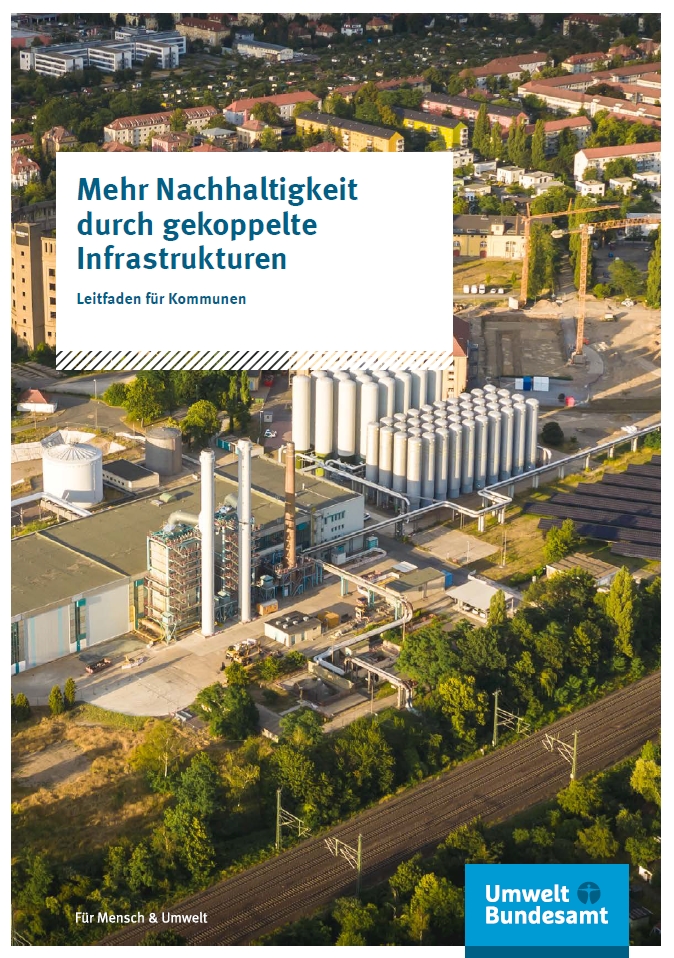Erfolgsbedingungen und Prozessbegleitung für eine nachhaltige Umgestaltung von Infrastrukturkopplungen
- Publication
- Citation
Hirschnitz-Garbers, M., M. Hinzmann, S. Langsdorf, J. Walther, A. Olfert, G. Schiller, B. Brunnow, K. Hölscher, J.M. Wittmayer (2020). Erfolgsbedingungen und Prozessbegleitung für eine nachhaltige Umgestaltung von Infrastrukturkopplungen. Teilbericht des Vorhabens: "Transformation hin zu nachhaltigen, gekoppelten Infrastrukturen". UBA-Texte 101/2020, Umweltbundesamt, Dessau-Roßlau.
Infrastructure coupling offers the potential to make public services more sustainable in the long term and to contribute to climate and resource protection. As complex socio-technical systems, infrastructure systems are subject to a multitude of influences which can have a beneficial or detrimental effect on whether and how transformations towards sustainable, coupled infrastructures can be realised.
Against this background, the project TRAFIS "Transformation towards sustainable, coupled infrastructures" examined current developments in the field of infrastructure, the associated transformation processes including possible supporting and hindering influencing factors as well as potential sustainability effects of these novel coupled infrastructure solutions. The focus was on innovative, i.e. not established, coupling (understood as niche innovations) in the sectors transport, energy, water, waste water, waste management as well as ICT.
By means of transformative research we examined influencing factors and actors that support or hinder the transformation processes. Influencing factors encompass technical, organisational, economic and social aspects as well as the political and regulatory framework conditions. These include, for example, readily available and usable technological potentials, willingness to support and well-trained employees, financial means to cover high investment costs and lack of remuneration for energy storage, social acceptance of technologies as well as legal judgements and political decisions. Many of these influences also have an effect on whether the linkages can be transferred to other municipalities. Political support at the federal level seems necessary here, not least to provide investment start-up financing for pilot implementation of infrastructure interconnections.
The report is available for download.
